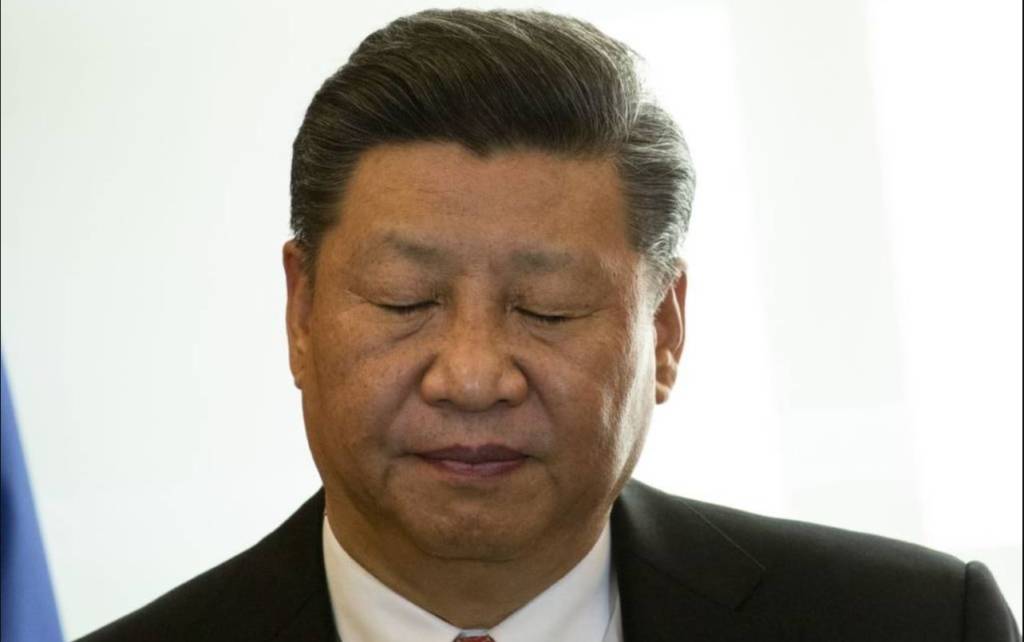As per a report by Kleiner Perkins, China has 9 companies in the world’s top 20 technology companies by market valuation. Alibaba, Tencent, Ant Financials, Baidu, Xiaomi, Didi Chuxing, and JD.com are some of the largest Chinese tech companies with market valuation and revenue ranging in billions of dollars.
In the last few years, the Chinese tech sector has grown exponentially, with active support and subsidies by the Communist government of China. The old sectors like steel and aluminum, which fuelled China’s rise in the last four decades since economic liberalization, have slowed down.
However, now President Trump is destroying Chinese tech giants one by one. After taking on Huawei and Tiktok, now Trump has signed an executive order that bars American companies from transacting on WeChat, the most popular social media app in China, owned by Tencent- the second largest technology company in China and one of the largest in the world.
WeChat “automatically captures vast swaths of information from its users. This data collection threatens to allow the Chinese Communist Party access to Americans’ personal and proprietary information,” Trump said in the executive order banning the app.
The shares of Tencent, which are listed in Hong Kong, plunged by 10 percent at the valuation of $686 billion after Trump signed the executive order. This led to a loss of more than 68 billion dollars for the company. However, the shares recovered slightly by the end of the day to a net loss of around 6 percent or 46 billion dollars.
Apart from Tencent, shares of other Chinese companies like Alibaba also suffered a loss of 5-10 percent in the market valuation, and the total loss Chinese tech sector is above 100 billion dollars.
The bar on use of transaction on WeChat will hurt all the Chinese companies which major businesses overseas use it as WeChat has a monopoly in business transaction. It is like the UPI of India for online transactions in China. The Trump administration is expected to take more measures in the next few days to destroy the Chinese technology behemoth. “The U.S. government is expected to follow up with more measures targeting Tencent,” said Steven Leung, executive director at UOB Kay Hian (Hong Kong) Ltd. “Tencent’s overseas expansion map now looks a bit uncertain, since some M&A deals, especially if its targets are based in the U.S., will face challenges.”
Tencent is like WhatsApp, Paytm, Facebook, Paypal, and Netflix rolled into one, with its super-app WeChat alone having more than 1 billion users worldwide. It was started in 1998 by a group of friends who copied an Israeli instant messaging and customized it for the Chinese market.
The United States banned Tencent for data theft and threat to National Security posed by the company. The popular app “may also be used for disinformation campaigns that benefit the Chinese Communist Party,” Trump said in the executive order banning the video-sharing app. “The United States must take aggressive action against the owners of TikTok to protect our national security.”
The consistent takedown of Chinese technology companies is set to hurt the Chinese economy which is now over-dependent on the sector. As per an article by ace investor and writer Ruchir Sharma, the digital economy now accounts for a third of the country’s national output and it is helping China manage debts in the old economy and keep growth alive. The total digital output of China is around 4 trillion dollars or more than India’s national output. According to Sharma, “the digital economy is helping China manage debts in the old economy and keep growth alive.”
When the old economy started showing signs of decline, the Communist government heavily invested in technological research and development, and now yearly spending is above 400 billion dollars, more than that of the European Union.
The investment in the technology sector was reaping benefits for the Chinese companies as well as the Chinese state, as countries around the world started using its hardware and software products.
But, in the last few months, India and United States have undone the gains made by Chinese companies in years. The successive bans on Chinese companies in countries around the world are weakening China’s tech hegemony, through which its dream of being the next superpower. The sophisticated surveillance system Chinese companies were building in many countries to make them vulnerable to Chinese cyberattacks, was destroyed by designating these companies as a “threat to national security.”
As Chinese technology companies lose the United States- the biggest market in terms of revenue- and India- the biggest market in terms of user base, their global ambitions are set to be curbed. All the gains made by China over the years were crushed by India and the United States in few moves, thanks to Xi Jinping’s expansionist policies and irresponsible strategic positioning.
